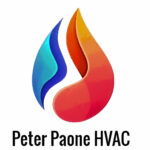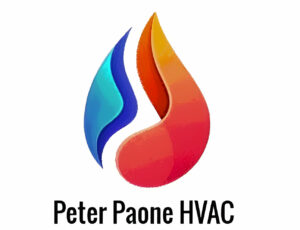If your system is functioning strangely, producing strange odors, noises, or not heating or cooling effectively, turn it off immediately. This reduces the risk of further damage and safety hazards like electrocution or fire.
2. Check the Thermostat
Incorrect thermostat settings can cause problems. Set your thermostat to the temperature you prefer. Also, check the thermostat’s power or battery packs.
3. Inspect the Circuit Breaker
Check your electrical panel for tripped breakers. If the HVAC breaker tripped, reset it. A repeat trip indicates a more significant electrical issue. Don’t try to fix this yourself, call an expert.
4. Look for Blocked Vents and Filters
Your system may shut down or operate poorly if blocked air passages or unclean air filters restrict airflow. Check to make sure the ducts are open and dust free. If an air filter is clogged, you need to replace it.
5. Check for Unusual Smells or Noises
You need to be aware of the unfavorable smells and sounds arising from a system in need of repair. A serious problem, like motor failure or another electrical issue, could be the cause.
6. Check for Water Leaks
A clogged drain line or gas leak may cause puddles around your HVAC unit. Before water damage increases or mold grows, turn off the system and call a specialist.
Emergency Procedures for Repairing the HVAC System
It can be very difficult when your HVAC system suddenly stops working during harsh weather. You can try some troubleshooting to diagnose problems. Fixing minor issues may restore basic functioning, but more complicated issues will require professional expertise. Taking quick, cautious action can help prevent additional damage and keep your house comfortable until the expert arrives.
1. Try Basic Troubleshooting
After shutting off the system, take the following simple troubleshooting actions:
- Replace dirty air filters.
- Reset tripped circuit breakers.
- Adjust thermostat settings.
- Clear obstructions from vents and outdoor units.
2. Call a Professional Technician
Call an experienced professional for Greater Boston HVAC maintenance service. if basic fixes fail, and you notice electrical smells, refrigerant leaks, or weird noises. Contact Peter Paone HVAC for 24/7 emergency repair services.
Professionals can figure out how to fix the issues of the compressor, refrigerant, thermostat, and motor quickly. Repairing these yourself might be dangerous and void equipment warranties.
3. Document the Problems
Before your expert arrives, you need to observe and document all the unfavourable conditions. These might include unusual smells, noises, or system behavior. Note what day and time they started. Your observations will help an HVAC expert solve the issue.
4. Keep Backup Options Ready
When severe weather hits and your HVAC system fails, use backup options such as:
- Portable heaters or fans
- Opening windows for ventilation (if outdoor air is safe)
- Blankets or cooling towels
- Battery-powered fans in case of a power outage
5. Schedule Preventive Maintenance
Prevention makes the best emergency repair. Maintenance can prevent small issues from growing. Annual HVAC checkups can ensure system efficiency year-round. To accomplish this, technicians will inspect for leaks, clean components, and test electrical systems.
6. Upgrade if Needed
Upgrading your HVAC system with professional assistance can minimize the chance of a breakdown. When you modernize your HVAC system, you can also benefit from various smart features. System upgrades boost energy efficiency, reliability, and much more.
Taking quick action to troubleshoot certain basic issues can minimize discomfort and protect your system. However, for complex issues or persistent problems, you need to rely on professional Greater Boston HVAC Services. You can rely on the HVAC services of Peter Paone.

